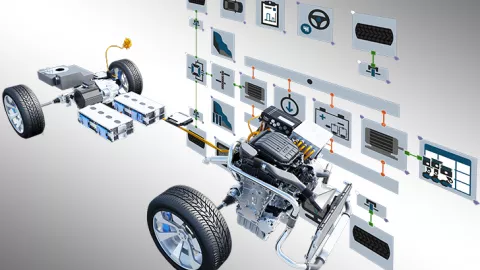
One important measure to meet the stringent restrictions on fleet average CO2 emissions is increasing the degree of vehicle powertrain electrification. Starting with electrified auxiliaries of conventional powertrains ranging all the way to fully electric vehicles.Modern electrified vehicles, also known as xEVs, are characterized by energy conversions and may even use multiple energy sources. This requires a holistic view of the energy flows within the vehicle system. To perform such an analysis, a multi-domain system simulation approach is necessary, optimizing the overall energy requirements during representative driving conditions that consider the influence of control functions. They define how the vehicle propulsion system operates - e.g. purely electrical or combined driving, recuperative or dissipative braking etc. The insight gained by this numerical investigation is the basis for further design modifications of individual components.In this 60-minute webinar, AVL's expert Oliver Knaus discusses how to optimize the energy consumption of the entire system, while respecting the individual demands of performance and drivability.AVL cordially invites you to join the one of our webinars on June 25th, 2019.Register now and be part of the simulation community!
Watch now
Meet our experts who are the presenters of this webinar.
Oliver Knaus